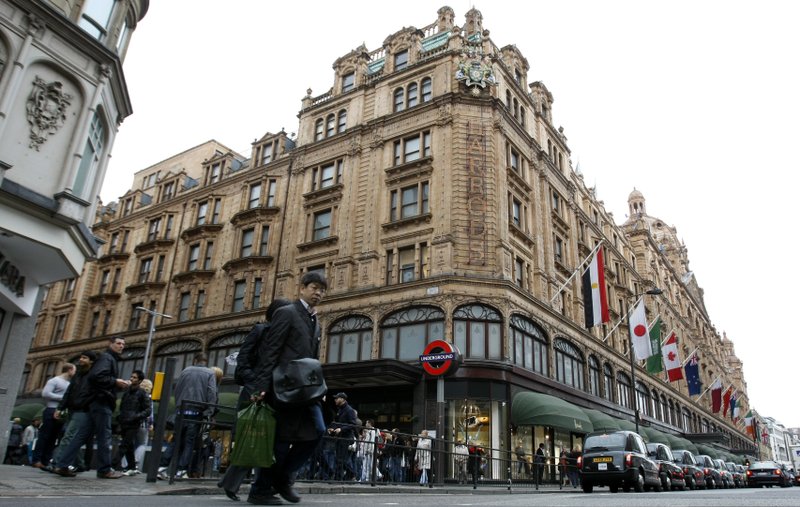LONDON -- A woman from Azerbaijan who spent $21 million on jewelry, wine and other goods at luxury London department store Harrods over the course of a decade has become the first target of a new British rule allowing officials to seize money from people suspected of getting their wealth through corruption.
A court has ordered Zamira Hajiyeva, 55, to explain where she got the money to also buy a $15 million London home close to Harrods and a golf course outside the city worth $14 million.
Hajiyeva's husband, former International Bank of Azerbaijan chairman Jahangir Hajiyev, was sentenced to 15 years in jail in his home country in 2016 for fraud and embezzlement.
The case marks Britain's first use of Unexplained Wealth Orders, introduced this year to curb London's status as a haven for ill-gotten gains. The orders allow authorities to seize assets over $66,000 from people suspected of corruption or links to organized crime until the owners account for how they were acquired. Investigators hope this new tool will strengthen their hand, by reversing the burden of proof.
During previous court hearings Hajiyeva was identified only as Mrs. A, but a court order granting her anonymity was lifted Wednesday.
At an earlier court hearing, a lawyer for Britain's National Crime Agency gave details of her spending at Harrods, a large chunk of it using 35 credit cards issued by her husband's bank. Between 2006 and 2016, Hajiyeva spent more than $21 million at the store, including $130,000 in one day on Cartier jewelry, almost $200,000 in another trip on goods from luxury brand Boucheron, and $2,400 on wine.
The crime agency argued that the lavish spending was a sign the money was ill-gotten.
Hajiyeva denies wrongdoing and is fighting to overturn the order and hang on to her properties.
Her lawyers said in a statement that the issuing of a wealth order "does not and should not be taken to imply any wrongdoing, whether on her part or that of her husband."
They said the order "is part of an investigative process, not a criminal procedure, and it does not involve the finding of any criminal offense."
"Where we cannot determine a legitimate source for the funds used to purchase assets and prime property it is absolutely right that we ask probing questions to uncover their origin," economic crime investigator Donald Toon said in a statement. "Unexplained-wealth orders have the potential to significantly reduce the appeal of the U.K. as a destination for illicit income."
Information for this article was contributed by Franz Wild of Bloomberg News.
Business on 10/11/2018
